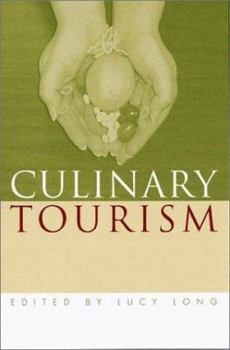Book Overview
For many tourists, tasting the authentic cuisine of a particular destination can be the highlight of travel. Exotic foods entice the traveler to experience a variety of culinary traditions and cultural customs, shaping both individual and group perceptions of food. The tourism industry savors foreign fare as consumers do, providing familiar settings such as restaurants and festivals to lure the hungry traveler. Although anthropologists and folklorists have written much about the nature of tourism, none have focused on food's role in tourism. In Culinary Tourism, the contributors argue that the sensory experience of eating provides people with a unique means of communication. Because cuisines are often associated with particular cultures, eating can easily transport the taste buds and the mind to a table overlooking the Mediterranean, the Pacific, or the Caribbean, all without leaving the comforts of home. Long contends that although the interest in experiencing "otherness" is strong within American society, total immersion into the unfamiliar is not always welcome. In the U.S., the spicy flavors of Latin America and the exotic ingredients of Asia have been mainstreamed for everyday consumption. Culinary Tourism explains how and why interest in foreign food is expanding tastes -- and leading to commercial profit -- in America, but the book also looks at how culinary tourism combines one's personal experiences with one's cultural and social attitudes toward food and one's circumstances for adventurous eating.
Format:Hardcover
Language:English
ISBN:0813122929
ISBN13:9780813122922
Release Date:December 2003
Publisher:University Press of Kentucky
Length:320 Pages
Weight:1.50 lbs.
Dimensions:1.2" x 6.5" x 9.2"
Grade Range:Postsecondary and higher
Related Subjects
Business & Investing Cooking Cooking Essays Holiday Cooking Travel Travel Writing WritingCustomer Reviews
0 rating





